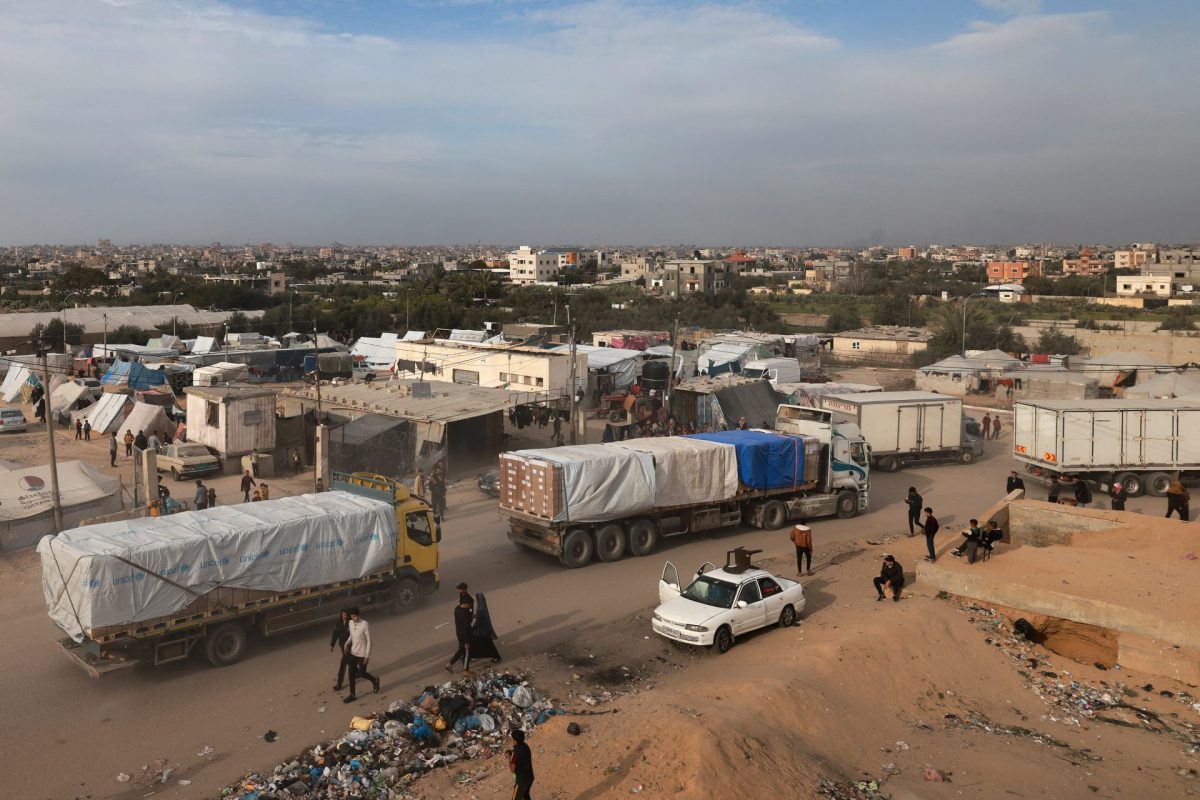In a preliminary response to a South African petition accusing Israel of genocide, the UN’s top court ordered Tel Aviv to do all it can to prevent death, destruction and any acts of genocide in Gaza.
It stopped short of ordering an end to its military offensive that has triggered a humanitarian catastrophe in the tiny Palestinian enclave. Israel vehemently denies the charges against it, claiming it is fighting a war in self-defense although rights groups have widely condemned the Israeli response.
In its ruling last month, the International Court of Justice ordered Israel to follow six provisional measures , including taking “immediate and effective measures to enable the provision of urgently needed basic services and humanitarian assistance to address the adverse conditions of life faced by Palestinians in the Gaza Strip”.
Under the orders, Israel also must submit a report on what it is doing to adhere to the measures within a month. While Monday marked a month since the court’s orders were issued, it was not immediately clear whether Israel had handed in such a report.
Human Rights Watch said Israel was not adhering to the court’s order on aid provision, citing a 30 percent drop in the daily average number of aid trucks entering Gaza in the weeks following the court’s ruling.
It added Tel Aviv was not adequately facilitating fuel deliveries to hard-hit northern Gaza and blamed Israel for blocking aid from reaching the north, where the World Food Program said last week it was forced to suspend aid deliveries because of increasing chaos in the isolated part of the territory.
“The Israeli government has simply ignored the court’s ruling, and in some ways even intensified its repression, including further blocking lifesaving aid,” stated Omar Shakir, Israel and Palestine director at Human Rights Watch.
Echoing Human Rights Watch, the Association of International Development Agencies, a coalition of over 70 humanitarian organizations working in Gaza and the West Bank, announced aid deliveries have slowed since the court’s ruling, with almost no aid reaching areas in Gaza north of Rafah.
Israel denies it is restricting the entry of aid and has instead blamed humanitarian organizations operating inside Gaza, claiming hundreds of trucks filled with aid sit idle on the Palestinian side of the main crossing. The UN says it can’t always reach the trucks at the crossing because it is at times too dangerous.
Prime Minister Benjamin Netanyahu’s office also announced on Monday the War Cabinet had approved a plan to deliver humanitarian aid safely into Gaza in a way that would “prevent the cases of looting”. It did not disclose further details.
Since 7 October 29,800 people have been killed in Gaza, two thirds of them women and children, with a further 70,000 wounded.
Israel has flattened large swaths of Gaza’s urban landscape, displacing about 80 percent of the territory’s 2.3 million people who have crammed into increasingly smaller spaces looking for elusive safety.
The crisis has pushed a quarter of the population toward starvation and raised fears of imminent famine, especially in the northern part of Gaza, which was the first focus of Israel’s ground invasion and where starving residents have been forced to eat animal fodder and search for food in demolished buildings.
“I wish death for the children because I cannot get them bread. I cannot feed them. I cannot feed my own children,” Naim Abouseido yelled in anguish as he waited for aid in Gaza City.
“What did we do to deserve this?”
Bushra Khalidi, with UK aid organization Oxfam, told The Associated Press that it had verified reports that children have died of starvation in the north in recent weeks, which she stated indicated aid was not being scaled up despite the court ruling.
Israel announced that 245 trucks of aid entered Gaza on Sunday, less than half the amount that entered daily before the war.
But Human Rights Watch, citing UN figures, said that between 27 January and 21 February, the daily average of trucks entering stood at 93, compared to 147 trucks a day in the three weeks before the world court’s ruling. The daily average dropped further, to 57, between the 9 and 21 February, the figures showed.
Aid groups say deliveries continue to be hobbled by security issues. The French aid groups Médecins du Monde and Doctors Without Borders each noted that facilities belonging to them were struck by Israeli forces in the weeks following the court order.
United Nations agencies and aid groups say the hostilities, the Israeli military’s refusal to facilitate deliveries and the breakdown of order inside Gaza make it increasingly difficult to get vital aid to much of the coastal enclave. In some cases, crowds of desperate Palestinians have surrounded delivery trucks and stripped the supplies off them.
The UN has called on Israel to open more crossings, including in the north, and to improve the coordination process.
